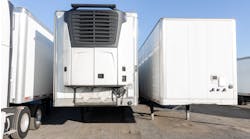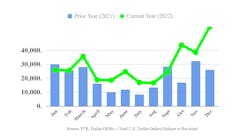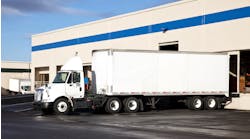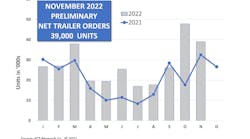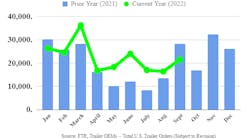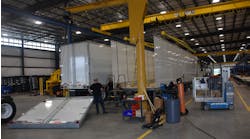FTR reports preliminary trailer orders for November dipped to 20,200 units, which is 34% down from October, as fleets are becoming more cautious about freight conditions in 2020.
On a year-over-year comparison, orders were down 55% from November 2018, when limits on OEM capacity resulted in carriers placing huge orders to lock in build slots throughout 2019. Trailer orders for the last 12 months total 215,000 units.
OEMs have plenty of capacity to handle a more stable freight and trailer demand environment in 2020, so fleets are placing smaller orders and only ordering a few months out. Production continues to fall moderately on a per-day level, as freight growth has stalled. There is still a decent demand for dry vans and reefers, but the vocational segments, especially flatbeds, continue to weaken.
“Fleets are being more cautious with their truck orders, so it makes sense that trailer orders would follow suit,” said Don Ake, FTR vice president of commercial vehicles. “There is no reason to order in large quantities like last year. The supply of trailers has almost caught up with the demand for trailers, so ordering levels are flattening out and fleets are watching the market closely. There is still too much uncertainty regarding the economy, trade, tariffs and politics for companies to have a great deal of confidence right now for 2020.
“It is expected that orders will track in this range for a while, as fleets continue to place modest-sized orders for short-term needs. OEM lead times are much shorter than a year ago, so ordering patterns will be much different, and more stable, than last year’s cycle.”

